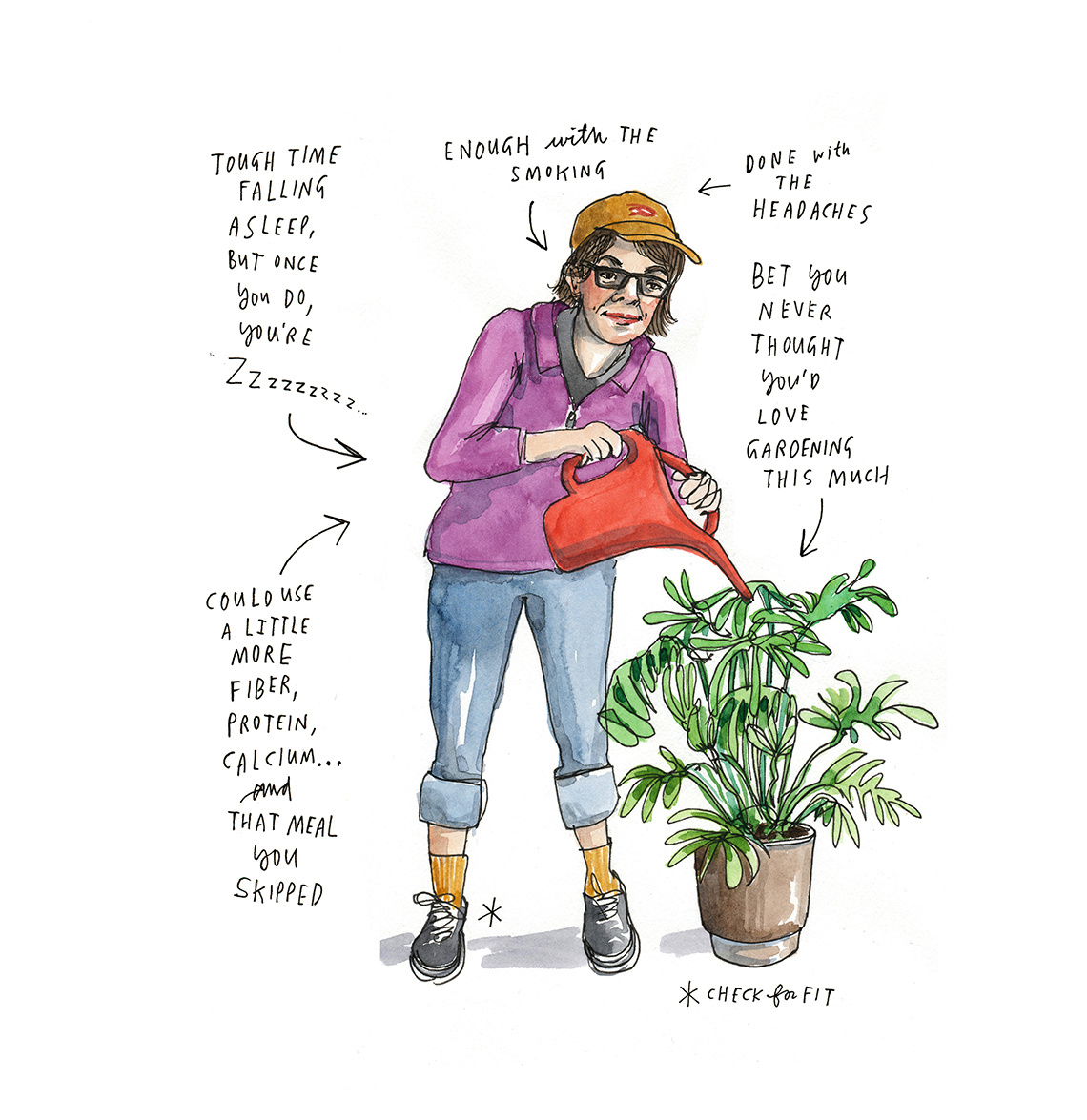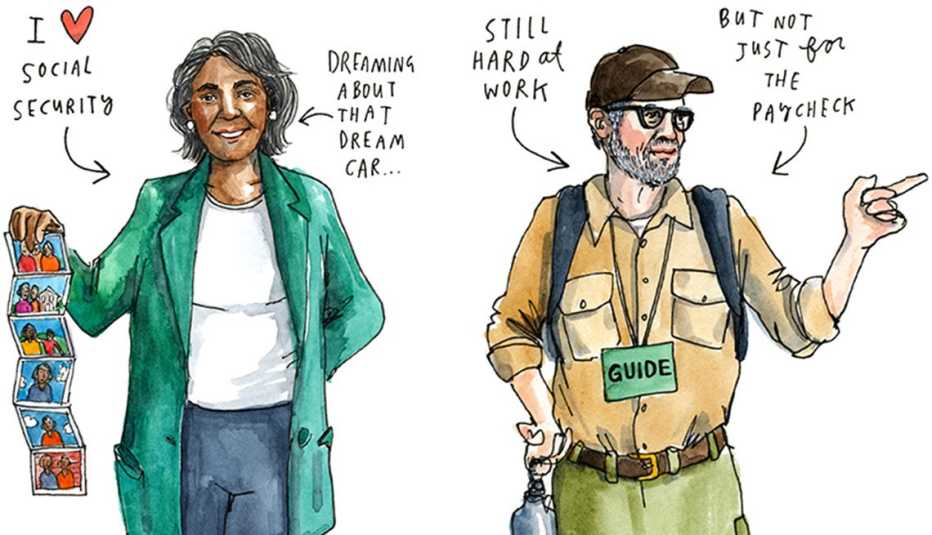AARP Hearing Center
THE LOWDOWN: You drink and eat less, garden more, are very big into various pills — and may well be wearing the wrong shoes. You also tend to smoke less, have fewer migraines and sleep fitfully.
In Your 70s and Beyond You ...
… love gardening for the exercise and health bonuses … Forty-five percent of men and more than 1 in 3 women in their 70s garden, and they eat more fruit and vegetables and get more exercise than nongardeners.
… though are on the fence about formal exercise. About 50 percent of 70-somethings exercise for at least half an hour three times a week.
You could teach younger friends a thing or two about healthy eating … A whopping 86 percent of people in their 70s say they ate healthy all day yesterday, a Gallup poll found. In contrast, just 56 percent of people in their 20s did as well.
… should bump up protein, calcium and fiber intake … Approximately 70 percent of women and 50 percent of men don't get enough muscle-pampering protein; more than 90 percent of both genders are low on bone-protecting calcium. And 97 percent of men and 99 percent of women skimp on fiber.
… don't get thirsty like you used to … People in their 70s sip less than four cups of plain water a day; women and men need about seven glasses daily.
… and may be a meal skipper. About 30 percent of 70-somethings eat just two meals a day. That could increase your risk for obesity and metabolic glitches that can lead to diabetes and heart disease, notes the American Heart Association.
You are less likely to smoke than younger adults … More than 8 percent of 70-somethings smoke tobacco — compared with 17 percent of people in their 50s and early 60s, the Centers for Disease Control and Prevention reports.
… but are at high risk for heart disease. At age 70, your risk for heart disease is about 36 percent; by 79, it rises to 44 percent, according to the U.S. Agency for Healthcare Research and Quality.
You lead the nation in supplement use … Sixty-six percent of men and 75 percent of women in their 70s report taking dietary supplements; about half opt for a multivitamin. Beware of taking too much iron, which could increase the risk for heart disease, cancer and type 2 diabetes for some people.
... and most take at least one Rx drug … Eight in 10 of you do; 40 percent take four or more — primarily for high cholesterol, high blood pressure, reflux disease, diabetes and pain.
… yet may skip needed meds for budgetary reasons. Up to 15 percent of people in their 70s cut back on prescription drugs because of high costs.



































































